Support strong Canadian climate journalism for 2025
This year has been a turbulent one for the world, filled with soaring highs and abysmal lows. Below is a list of our top stories of the year, beginning after National Observer's launch in April on the heels of its successful Kickstarter campaign. These aren't just the high-traffic stories, but the ones that sparked public debate and reflection. They are national and global in scope, and all worth revisiting over the holidays.
Is Canada ready to absorb the new climate exodus?

By Fram Dinshaw
This gripping multimedia piece by Ottawa correspondent Fram Dinshaw examines Canada's capacity to deal with a mass exodus of up to 200 million environmental refugees predicted by 2050. If climate change proceeds as expected, he writes, homes will be rendered uninhabitable by extreme weather, rising sea levels, and mega-droughts. Hoping to get a head start on the problem, some experts — including Green Party leader Elizabeth May — believe Canada should a create new class to accommodate the 'climate refugee' in its system of asylum.
How Canada made the Koch brothers rich

By Bruce Livesey
Investigative reporter Bruce Livesey went as far back in history as 1900 to dig up the truth about Koch Industries' lucrative stake in the Canadian oil industry, which helped build the foundation for the family's massive wealth. The billionaire brothers own more than one million acres of Alberta's tar sands, and a Minnesota oil refinery that processes roughly 320,000 barrels of Canadian oil per day. According to Livesey's reporting, these operations fund their ideological investments in right-wing American political groups that question the severity — and in some cases, the very existence — of global warming. As it turns out, they also donate to Canadian right-wing think tank Fraser Institute, and supported Republican candidates against the climate-conscious President Barack Obama. Given that the Koch companies generate huge quantities of greenhouse gases, Livesey said these expenditures are no surprise.
Redacted diary reveals oil's hidden route to Harper
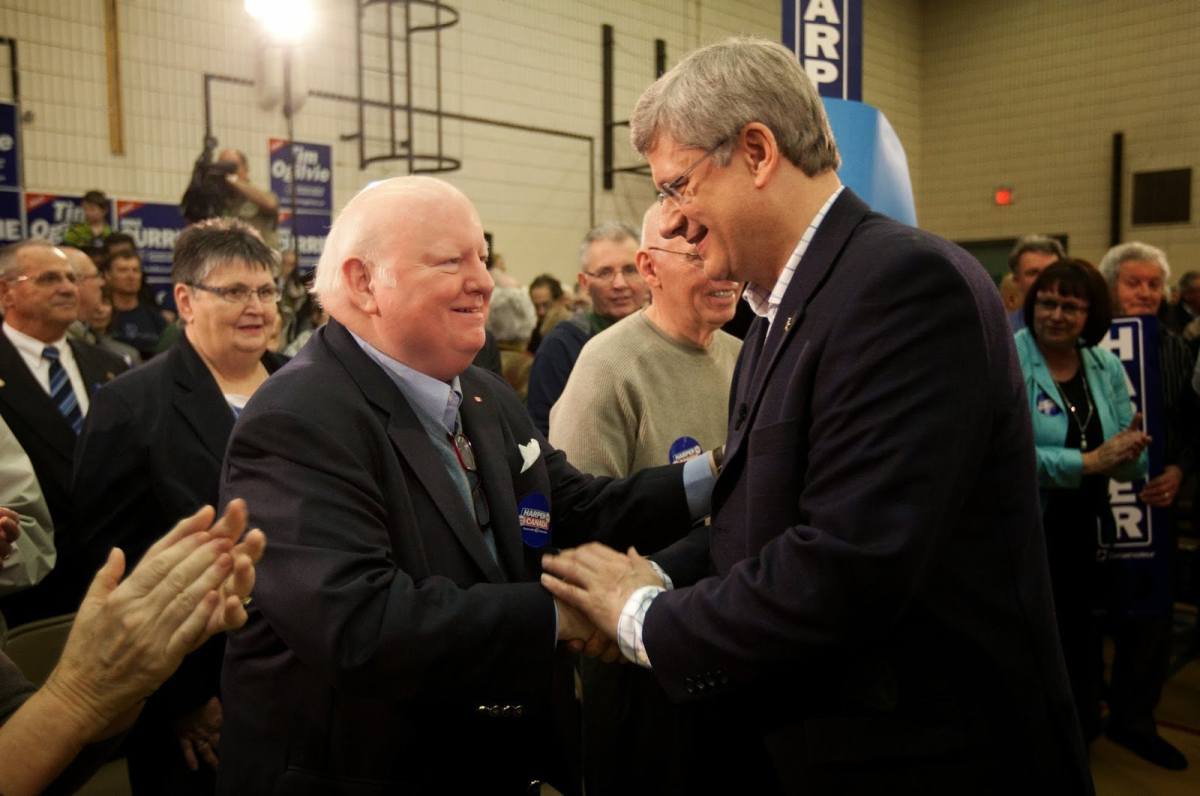
By Mychaylo Prystupa and Sandy Garossino
National Observer has been at the forefront of investigative reporting on disgraced senator Mike Duffy since his trial began in April this year. In this piece, reporters Sandy Garossino and Mychaylo Prystupa revealed that Duffy — currently facing 31 charges related to bribery, fraud, and breach of trust — was in regular, undisclosed contact with oil pipeline giant Enbridge and then-prime minister Stephen Harper. The investigation prompted the NDP to question Harper's intentions in Parliament: why did he want Duffy to look into Enbridge matters, and why was his own appointed senator in active, undisclosed contact with its executives, in possible violation of federal lobbying law?
Federal government unmuzzles scientists
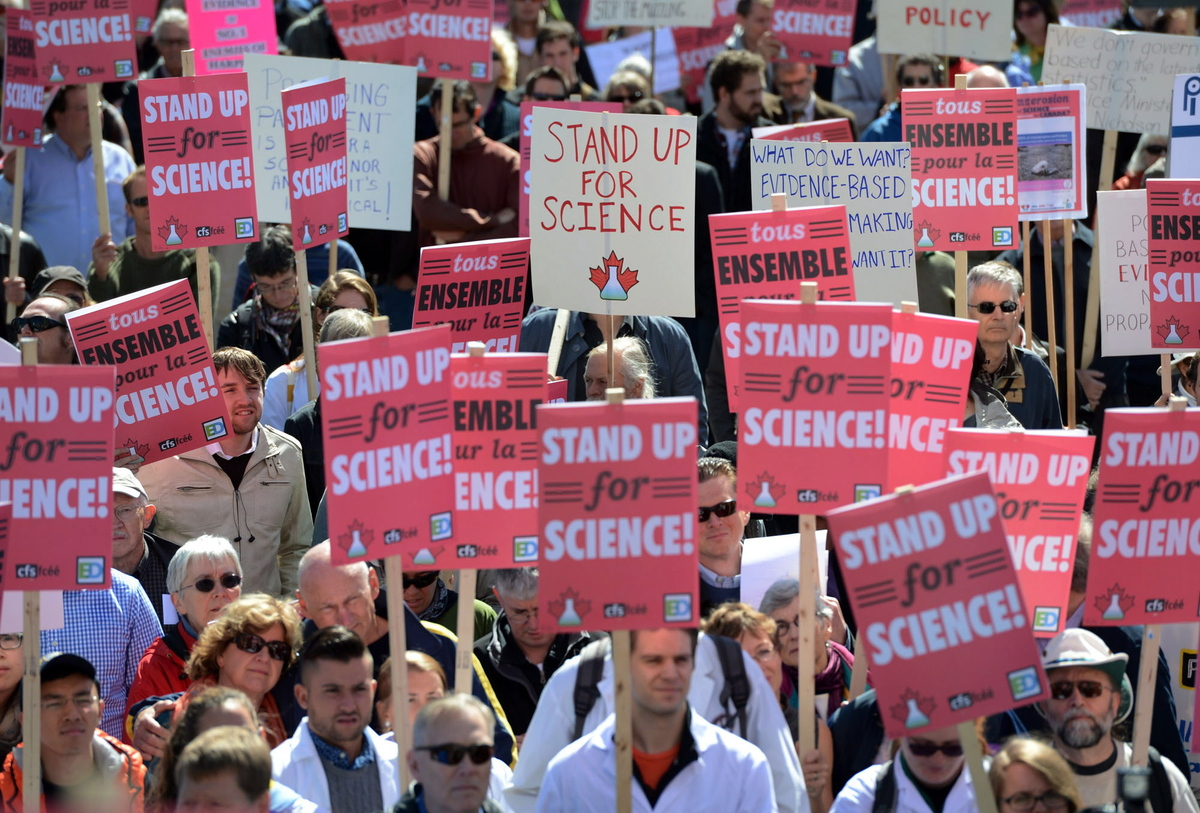
By Charles Mandel
After years of censorship and silence under the Stephen Harper government, reporter Charles Mandel was first to break the news that Justin Trudeau had removed the muzzle from federal scientists, who are now permitted to speak freely with media across the country. Fisheries and Oceans Canada was the first government department to lift the restrictions and Environment Canada quickly followed suit. The move was consistent with the prime minister's election campaign promise to revoke the rules and regulations silencing scientists, allowing them to speak openly about their work "with only limited and publicly-stated exceptions."
Observer spy exposé triggers federal hearings

By Linda Solomon Wood and Jenny Uechi
A 2013 investigation by Observer Media Group's Vancouver Observer publication found CSIS and the RCMP spying on groups critical of the tar sands, particularly the Enbridge Northern Gateway Pipeline. In 2015, these findings launched a federal hearing with the Security Intelligence Review Committee (SIRC) to determine if this 'spying' on activists was in violation of federal law. National Observer covered the proceedings, which took place in a "cloak of secrecy," according to editors Linda Solomon Wood and Jenny Uechi.
Former CAPP veep says she doesn’t bring any bias to new Natural Resources job

By Charles Mandel
She’s sailed with climate-change deniers on Conservative Ezra Levant’s Freedom Cruise, but Canadian Association of Petroleum Producers’ (CAPP) VP of communications Janet Annesley told National Observer she doesn't bring any bias to her new job in the federal Natural Resources ministry. “I don’t think I have a bias,” she said in a frank interview with reporter Charles Mandel. “I don’t have any shares or interests in resource companies. What I do have is strong experience.” While environmental groups expressed grave concerns about her influence in Trudeau's new government, some said her main role is to keep the minister out of trouble — and that requires someone who knows the industry.
How an enviro minister spent her day not attending a climate summit
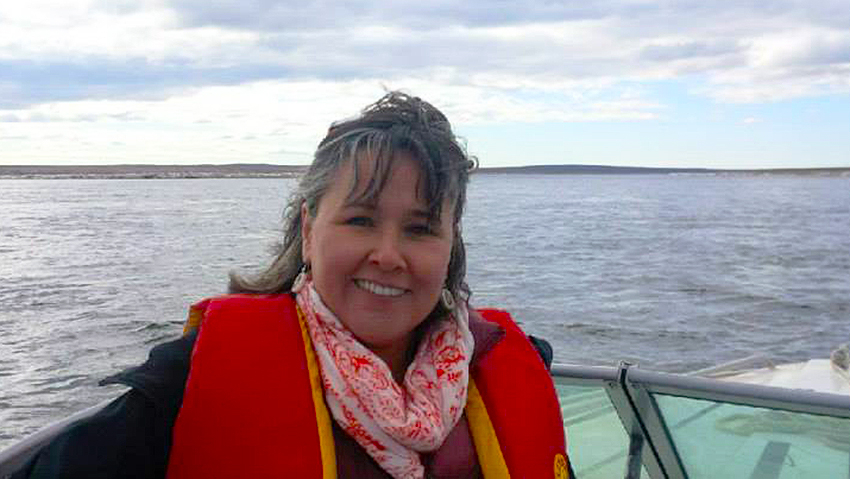
By Mychaylo Prystupa
What was so important that it kept Leona Aglukkaq, Canada's Inuk federal environment minister, away from the Climate Summit of the Americas in July 2015? When she refused to answer this question for National Observer, reporter Mychaylo Prystupa turned to social media for records of her activities. His investigation found that instead of attending the vital climate change conference, she spent her time cruising around Baker Lake, posing for photos in front of an inuksuk, "officially" opening a national park that had been open for over a decade, and attending announcements in her Nunavut riding that were "not a matter of priority," according to former Liberal Member of Parliament, Jack Anawak in Iqualit.
Feds penny-pinched on science libraries while lavishing funds on religion and oil

By Elizabeth McSheffrey and Jenny Uechi
Beginning in 2008, the federal government spent more than $20 million on Christian religious groups and schools. It invested $15 million on the Canada School for Energy and Environment, which is accused of being a "one-man advocacy centre" for former PMO staffer Bruce Carson. It also rewarded senior government bureaucrats with large bonuses for under spending their budgets, and considered buying 20,000 custom-printed stress balls for staffers at the Department of National Defence. Yet even as the federal government lavished funds in these areas, it subjected many of its departments to a “strategic review” that demanded they find ways to slash millions of dollars from the federal budget. Science libraries were frequently hit the hardest. Jenny Uechi and Elizabeth McSheffrey teamed up on an investigation to find out more.
Joe Oliver's expensive travel costs undermine Conservatives' fiscally responsible image

By Jenny Uechi
After review of financial records published on federal government websites, National Observer's Jenny Uechi reported that Conservative Finance Minister Joe Oliver had the most expensive travel costs out of all the members of Stephen Harper's cabinet. These spendings sometimes exceeded $6,000 on a domestic plane trip between major Canadian cities, flying in the face of the Conservative Party's platform of 'responsible' spending of taxpayer dollars, and Stephen Harper's promise to "end the culture of entitlement" in Ottawa.
Veterans declare war on Harper

By Fram Dinshaw
Reporter Fram Dinshaw took readers inside the 'Anyone But Conservative (ABC) Canadian Veterans Campaign,' through his heartbreaking interviews with Canada's former soldiers struggling with the effects of Post Traumatic Stress Disorder (PTSD). They expressed anger over cuts to vital veterans' services and closure of Veterans' Affairs offices despite repeated objections from former soldiers. Throughout the course of the 2015 election, these movers and shakers targeted swing ridings and areas with military bases in an effort to unseat the incumbent prime minister, and get the support and funding that former military men and women require.
As carbon cuts loom, some Canadians have lots of clean energy, others none
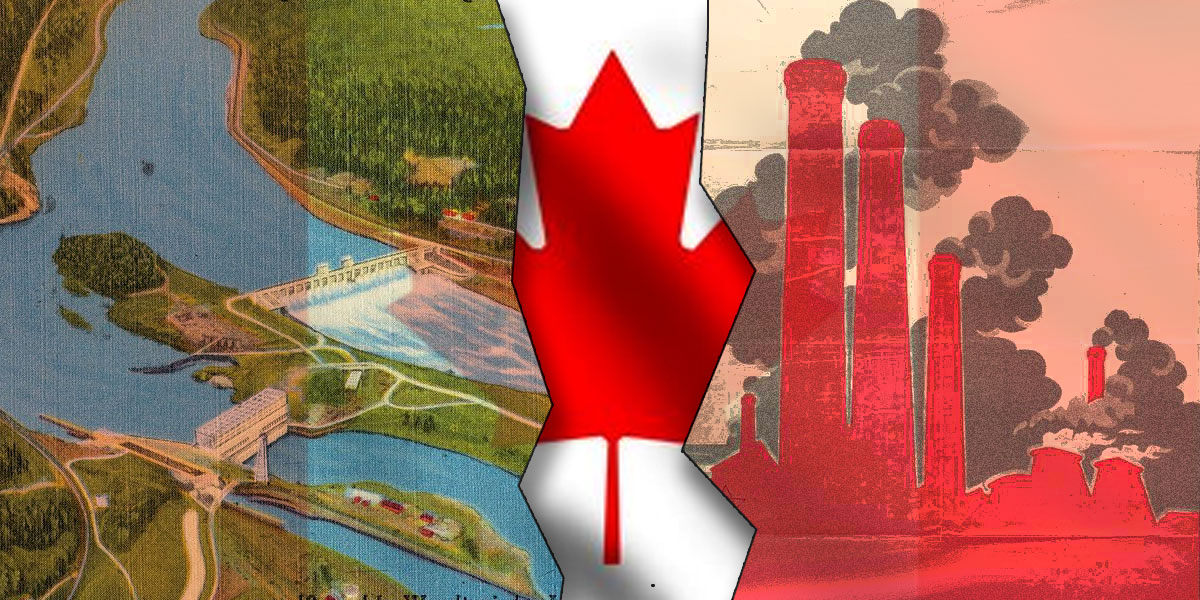
By Barry Saxifrage
Unfortunately, not all energy is made equal. Despite a national trend in carbon cuts, some of Canada’s provinces produce some of the world’s dirtiest electricity (on par with China in fact), while others produce some of the cleanest electricity. In this report, National Observer used homemade graphs to compare Canada's energy pariahs with its greenest producers, and predict their trajectory over the next 10 years.
Oil crash pushing Fort McMurray to the breaking point
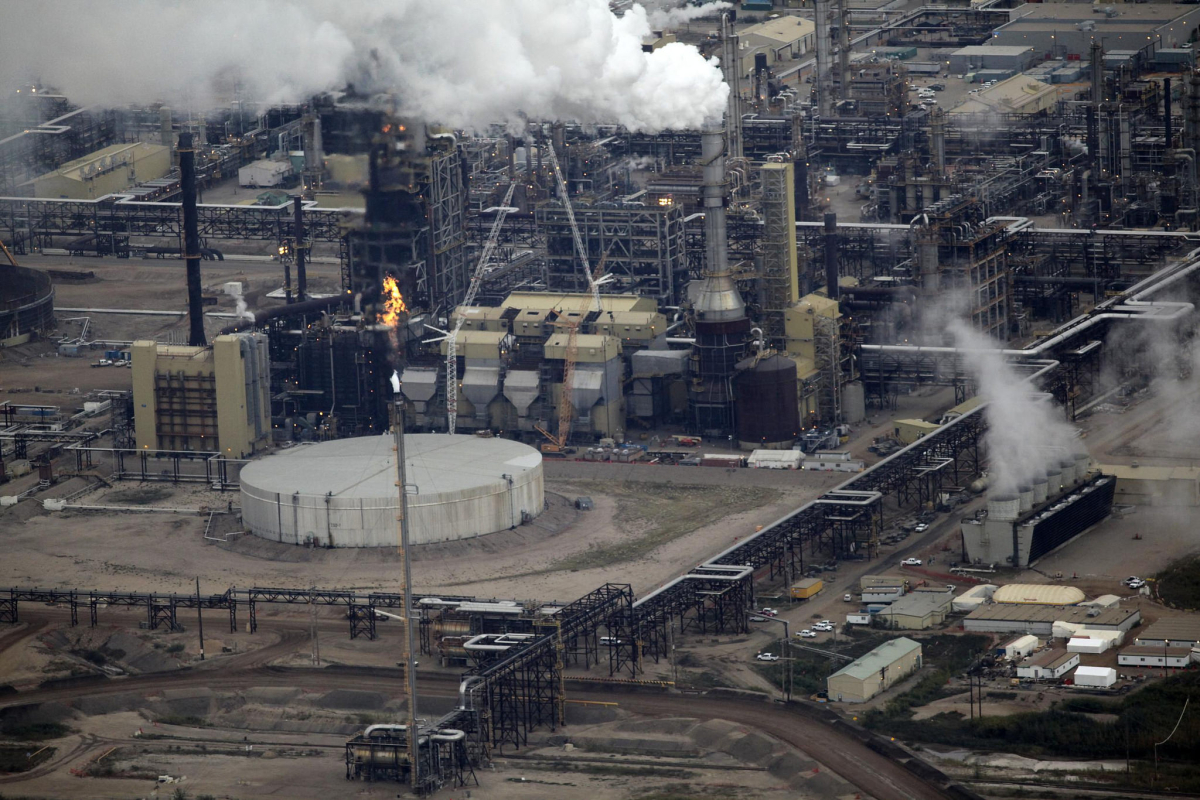
By Joshua Hergesheimer
As the slowdown in northern Alberta deepens, tens of thousands of unemployed oil patch workers are heading home. During the boom times, Fort McMurray attracted workers from across the country, but now those days feel like another lifetime ago. What is it like for people who had to leave? The people who live in Fort McMurray, bought homes, enrolled their kids in school, and got involved in their communities? What has the downturn meant for them? Reporter Joshua Hergesheimer flew into the northern Alberta settlement to find out the answers to these questions.
Trudeau, beyond the soundbites

By Mark Leiren-Young
Justin Trudeau has always been a little different. Unlike many politicians at Vancouver's Gay Pride Parade, he didn’t ride a float to keep a safe distance from the crowd; instead he danced, ducked water cannons, and took selfies with fans. Mark Leiren-Young, who had a one-on-one interview with the Liberal leader around the time of the event, wrote an exclusive piece for National Observer that went beyond the quick clips of a hard news story, and got down to the very nuts and bolts of Trudeau's composition as a leader, a father, and a Canadian.
OPINION: Harper's race card gambles with women's safety to win votes

By Sandy Garossino
Only days after the federal leaders' French language debate inflamed passions about the niqab, two teenage boys set upon a pregnant Muslim woman on a Montreal street, grabbing her headscarf and knocking her to the ground. Later, a man accosted a Canadian-born, niqab-wearing mother out with her young daughters at a Toronto mall, blocking her way and driving his elbow into her. "It's unprecedented in modern times for a Canadian leader to turn citizen against citizen, and race against race with the ugliness we've seen emerge in the 2015 election," wrote former Crown prosecutor Sandy Garossino in an opinion piece that got straight to the point: "Stephen Harper set torch to a Pandora's tinderbox of hatred, and the fire is spreading."
Indigenous voters could yank victory from Conservatives in Kenora

By Elizabeth McSheffrey
Indigenous voters in the the northwestern Ontario riding of Kenora rallied together during the federal election to oust incumbent Conservative MP Greg Rickford, who had been in power since 2008. Under Tory leadership, the poor socio-economic conditions of many their First Nations communities had changed very little, wrote reporter Elizabeth McSheffrey, who spoke with Indigenous voters, politicians, and activists on the ground. Despite being polled early as a Conservative stronghold (with opposition split perfectly between the Liberal and NDP competition), Indigenous voters — who represent 35 per cent of the riding's voting population — yanked victory away from the former natural resources minister, only weeks after National Observer published the story.
Why Trudeau's 2015 election is historic

By Mychaylo Prystupa
He started in third place but made an unexpected high-stamina comeback in the final round. In this multimedia feature, Mychaylo Prystupa chronicled Justin Trudeau's rise to power as prime minister of Canada, and analyzed the fall of his competition, incumbent Conservative Stephen Harper and NDP leader Thomas Mulcair. Published on the evening of the federal election, the story includes expert predictions on the length and legacy of young Trudeau's reign, and how he will stack against his father's record of leadership.
The tawdry fall of Postmedia newspaper empire

By Bruce Livesey
Bruce's Livesey's analysis took readers back in time through some of Postmedia’s most troubling newsroom decisions, from pulled cartoon animations to an unpopular political endorsement during the federal election campaign. These events, coupled with the influence of big American hedge fund shareholders, found undue corporate and editorial influence controlling the freedom of Postmedia journalists. The analysis made major waves and was republished by the Toronto Star.
OPINION: Yellow stain: The bystander bigotry of newspaper endorsements

By Sandy Garossino
"The stain of this shameful moment in Canadian journalism will never wash completely clean from the Globe and Mail and Postmedia," wrote National Observer columnist Sandy Garossino in this biting opinion piece about publications endorsing the Conservative Party during the 2015 election. Then-prime minister Stephen Harper had recently used "fear-mongering" campaign tactics, including race-baiting with the niqab issue and a "snitch-line" for reporting the "barbaric cultural practices" of Canadian Muslims. These incidents were documented in newspapers, which then went on to endorse Harper regardless. "The tragedy is that, by refusing to denounce and disown Canada's most racist and misogynist election campaign in modern times, two nationally respected media institutions became its collaborators," she added. This was one of National Observer's most widely-read columns in 2015.
Furry fiasco: Investigation reveals canine fur used in Canadian brand's products
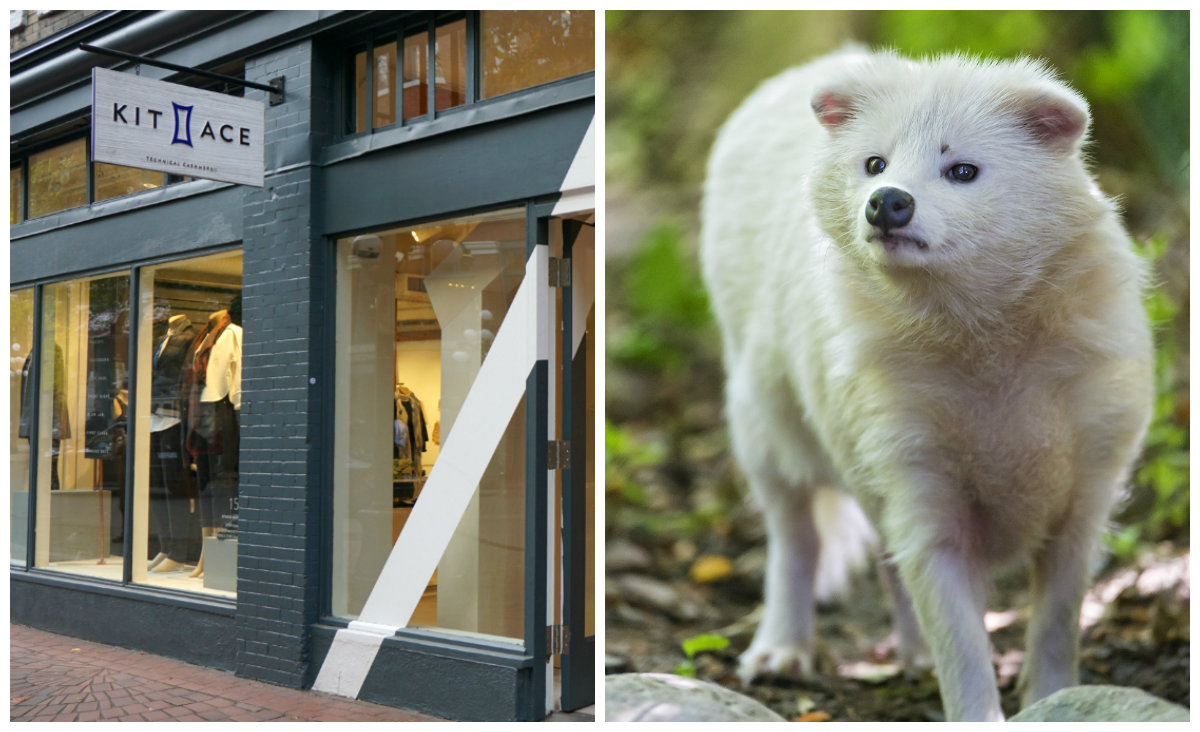
By Elizabeth McSheffrey
When an animal welfare group tipped off National Observer that a Canadian luxury retailer, Kit and Ace, may be using canine fur in one of its products, Elizabeth McSheffrey went undercover to find out. Three whistleblowers came forward during her investigation, which caught Kit and Ace promising customers that its hat is made from genuine raccoon fur, rather than raccoon dog, a member of the canine family. A leaked email also revealed an internal corporate strategy to mislead customers about the toque, and the report called into question Canada’s loose labelling laws for fur, resulting in an internal corporate inquiry at Kit and Ace. The story was cited in media outlets across the country, including CBC, Maclean’s, CTV, Metro Vancouver and The Vancouver Sun.
Four reasons why Stephen Harper won't debate Elizabeth May
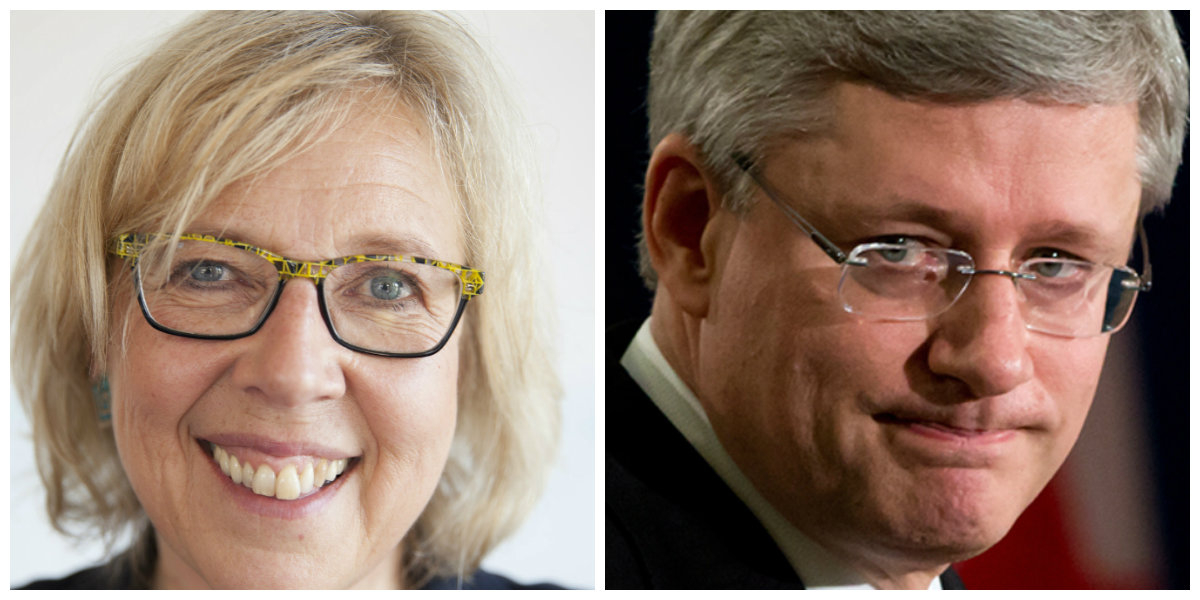
By Warren Bell
After Green Party leader Elizabeth May's first televised election debate of 2015 in August, an overwhelming number of Canadians — nearly 80 per cent of those polled — said they wanted to see her in future debates. May impressed millions with her strong command of the facts and ability to hold then-prime minister Harper's feet to the fire. So why was she excluded from subsequent English-language debates? In a widely-shared opinion piece, columnist Warren Bell observed that May is the one candidate who could defeat Harper in a one-on-one debate and expose his "incremental destruction of Canada's democracy" as no one else could.
World agrees on "historic" climate deal to phase out fossil fuels

By Mychaylo Prystupa
After two weeks of haggling, 190 countries agreed on a goal to limit global warming to no more than 1.5 degrees Celsius and reach a zero greenhouse gas emissions level by the second half of the century. Reporting live from Paris, Mychaylo Prystupa covered the historic agreement, which calls for the global phasing out of fossil fuels. According to experts however, the deal may still not be enough to avert catastrophic effects of climate change or provide enough funding for vulnerable nations that will be hit the hardest by wild weather.
COLOUR BLIND: The Truth you still don't know about Reconciliation

By Sandy Garossino
In a searing commentary on Truth and Reconciliation, Sandy Garossino talks of her own experience with the systemic marginalization of Indigenous peoples in Canada, and how it plays out today. "They were outsiders who passed through our system and our daily lives, but they weren't us," she says, of the way the court system treated Aboriginal people. Garossino observes how the court system failed Indigenous claimants in the John Furlong case, coming to a decision without ever hearing them speak. Garossino writes: "It’s Canada's solemn duty to learn things it’s unbearable to know. And then to change. The Reconciliation is for us to do."


Comments